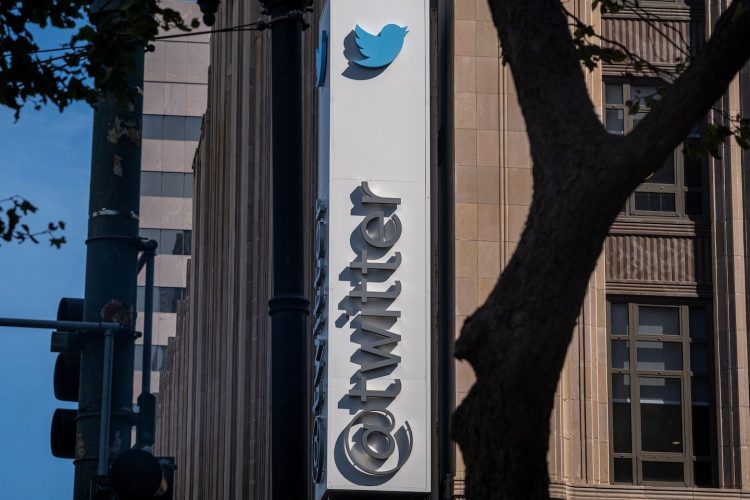SAN FRANCISCO — A judge in Delaware Chancery Court has agreed to postpone the trial between Elon Musk and Twitter so the two sides can come up with a deal for Musk to buy the company, according to a legal filing late Thursday.
The filing capped a week of tense legal drama in which Twitter insisted on a trial while Musk claimed he had the $44 billion needed to close the deal within days.
Judge Kathaleen McCormick decided to split the baby, pushing back the trial, which was to begin Oct. 17, until November so the parties could reach an agreement.
The developments were the latest twist in the roller coaster saga and came as Musk and Twitter traded letters Thursday over whether Musk can pony up the cash to buy the struggling social media company.
In the filings Thursday, Musk’s legal team insisted that the deal should close because he has the money, while Twitter pushed back — arguing that Musk was essentially bluffing and the case should go to trial.
Musk’s team argued that the banks providing him the financing to seal the deal “have indicated that they are prepared to honor their commitments and are working in good faith” on the transaction, with an anticipated closing date of Oct. 28. But Musk’s side also acknowledged a small possibility that the money might not come through.
After the judge issued her ruling, Twitter said it accepted the Oct. 28 date. “We look forward to closing the transaction at $54.20 by October 28th,” said spokesman Scott Bisang.
Thursday’s filing followed a two-sentence letter Monday in which Musk’s team asked Twitter to withdraw its suit and let him buy the company at the original $44 billion price — a major reversal for a man who had insisted for months that he needed to back out of buying Twitter.
The latest letter doubled down on that offer by formally asking the judge to end the litigation and followed days of frenzied backroom dealmaking in which Musk’s team had offered to settle the case at a lower price — only to be rebuffed, said a person familiar with the deal, who spoke on the condition of anonymity to describe sensitive matters.
Twitter’s legal team responded quickly with its own filing. That filing said that Musk’s request to end the lawsuit was the equivalent of saying “Trust us, we mean it this time,” despite months of efforts to halt the deal. If Musk really had the money guaranteed, Twitter noted, why did his team propose an indefinite date for closing vs. an immediate one?
“Defendants can and should close next week. Until they do, this action is not moot and should be brought to trial,” Twitter wrote, referring to Musk.
Twitter also said Musk had yet to ensure that his debt financing was secured, saying that on Thursday morning, a corporate representative for one of Musk’s lenders testified at an unidentified proceeding that Musk had yet to communicate his intention to close, and had not sent a “borrowing notice.”
The judge’s decision to order a delay was a significant victory for Musk because Twitter had sought an expedited timeline in the case, arguing that its business was harmed every day the matter went unresolved. That led to the Oct. 17 trial date. In addition to getting the trial paused, Musk earlier this week succeeded in delaying his deposition as the two sides sought an agreement.
Twitter sources have said the company didn’t immediately accept Musk’s offer Monday because the company’s legal team saw money-related red flags. In the initial letter asking Twitter to withdraw its suit, Musk appeared to throw in a new condition: He said he was prepared to end litigation and buy the company pending the receipt of financing from banks that are giving him a loan to help buy Twitter.
This struck Twitter’s legal team as a potential red flag since the entire deal, signed in April, was contingent upon the cash already being lined up.
To raise $44 billion, Musk has divided the financing into two chunks. He has amassed more than $10 billion by selling Tesla stock, and an additional $23 billion from at least 18 partners, including close friend and Oracle CEO Larry Ellison, Saudi Prince Alwaleed bin Talal Al Saud, Qatar’s sovereign wealth fund, and investment firms such as Andreessen Horowitz and Sequoia Capital.
The seven banks involved have pledged $12 billion, rolled into a loan from Morgan Stanley.
The banks, however, have yet to communicate publicly and either declined to comment or did not respond to requests for comment when contacted by The Washington Post.
The deal may be less appetizing for the banks than it was when they signed on earlier this year. Generally, banks sell debt to other investors, but because of changes in interest rates and fears about a potential recession, risky debt is no longer in high demand.
Some banks that were previously committed to the deal apparently cooled on it. Apollo Global Management, which had been in talks to lead a preferred financing round, backed out, according to a person familiar with the discussions who spoke on the condition of anonymity because of the sensitive nature of the talks.
Musk brushed off any concern about firms such as Apollo.
He said a tweet citing their “non-interest” as “irrelevant” was “Correct,” in a tweet of his own.
Others entities that had pledged funding for the deal said they were still on board. A spokesperson for Binance, which had offered $500 million, said the company remained committed.
Source by www.washingtonpost.com






























